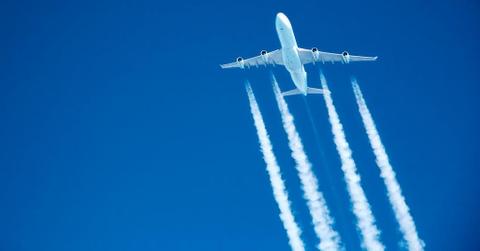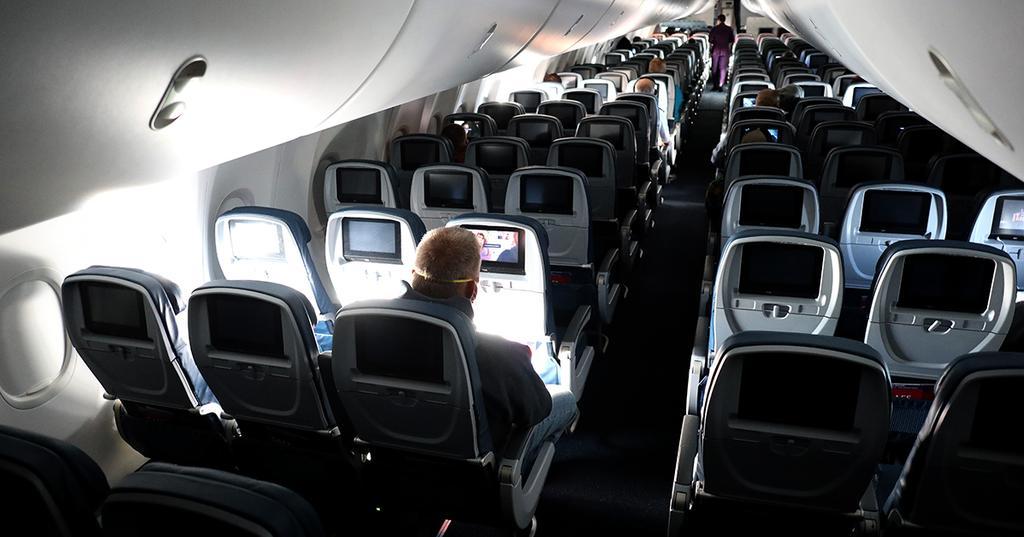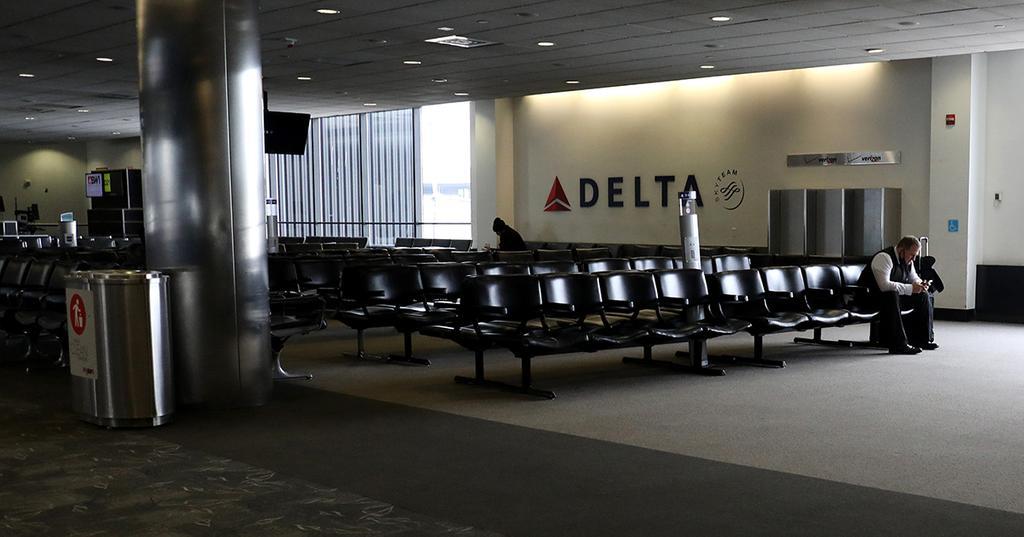
Airlines must fly certain routes — even without passengers — to qualify for bailout money
By Carly SitzerApril 22 2020, Updated 9:10 a.m. ET
In the wake of the COVID-19 outbreak, we’ve all taken drastic measures to stop the spread of the disease, hopefully protecting ourselves and those around us. Staying home has had some incredible effects on the planet; air pollution has dropped all over the world, wildlife is thriving, and we’re expecting to see a drop in emissions that the country hasn’t experienced since World War II.
The impact on the planet is largely the result of people not traveling; transportation is a highly polluting industry (whether you travel by plane, train, or automobile) and one that, you'd think, would be largely frozen in place while Americans are staying put. Unfortunately, plane emissions are going to continue to soar (no pun intended) despite the fact that people aren’t flying — and it’s by design.
Grist reports that the airline bailout plan, which was put into effect on April 14, requires any airlines to maintain “minimum service requirements” in order to qualify for the bailout money; that means that any air route that an airline flew at least once daily, five times a week, prior to March 1, must still take off and continue to be scheduled regularly — even if there aren't any passengers.

This can be avoided if they request an exception. And Grist found that nine airlines — including major players like American, Delta, and United — have already requested exceptions, but that still isn’t enough.
As a result of the bailout mandates, airline flights have only dropped by “something 50 or 60 percent,” Daniel Rutherford, program director for marine and aviation at the International Council on Clean Transportation explained to Grist. In contrast to the mild drop, Airlines for America (an airline industry lobbying group), passenger volume has been down by as much as 95 percent since this time last year, the New York Times reported.
The disparity can be seen with all the people flying on nearly empty, or entirely empty, flights around the States (including to and from areas deemed COVID-19 “hot spots,” like the New York City metropolitan area). Like that guy who went viral who got VIP treatment as the only one on his Southwest flight, or the woman who was flying to say goodbye to her dying mother and was “upgraded to first class” — the catch being, of course, that she was also the only passenger on board.
According to the Environmental and Energy Study Institute, commercial airlines are responsible for around 3 percent of all the United States’ greenhouse gas emissions. Greta Thunberg famously swore off flying after she learned about individual’s impact on the atmosphere while flying; anyone who has ever looked into a carbon offset fee for flying knows how significant the impact can be for an individual on a flight (and that’s, of course, assuming that the flight is fully booked, so you can only imagine how much it increases when the plane only has a single passenger or in some extreme cases, no passengers at all).

Despite some efforts to curb the airline industry’s emissions problems — from carbon offset taxes to attempts at better, more efficient potential fuel options — pollution remains a gigantic, and growing, problem, even in the best of circumstances. And even though the commercial airline industry saw its biggest drop since 9/11 this past Feburary, it seems clear that, especially with the bailout, the industry will be able to rebound, and any drops in emissions are only temporary.
The International Air Transportation Association reported late last month that China — which was hit first, and hard, by the coronavirus — is already seeing some recovery in the airline industry, which means the world should still be thinking not only about how social distancing will work in airports and in the air, but also how emissions can be reduced as we see major changes to the airline industry. An IATA blog post explained the small recovery in China was the country’s first upward trend since the January lockdowns in Wuhan.
“The civil aviation market dropped by around 80 percent between Jan. 23 and the middle of March, according to IATA figures. Nearly 500,000 domestic and international flights to and from China were canceled,” the blog post stated. “But we are now seeing the first tentative green shoots of a recovery. It’s early, it’s fragile, and it’s certainly not guaranteed but domestic passenger numbers in China have been showing signs of a potential turnaround.”
While it’s important to acknowledge that the airline industry has a long way to go in terms of their own emissions and environmental issues, in light of a dark time in humanity, we can also remember ways the airline industry has been able to aid in the fight against coronavirus and bring humanity together in the fight: several airlines have offered to fly medical workers into high risk areas for free, and international flights have been instrumental in getting necessary medical supplies — like ventilators, respirators, and all sorts of personal protective equipment — to the areas where they are needed the most. We can only hope that these flights without any passengers are at least carrying life-saving equipment.
The best way to prevent contracting or spreading coronavirus is with thorough hand washing and social distancing. If you feel you may be experiencing symptoms of coronavirus, which include persistent cough (usually dry), fever, shortness of breath, and fatigue, please call your doctor before going to get tested. For comprehensive resources and updates, visit the CDC website. If you are experiencing anxiety about the virus, seek out mental health support from your provider or visit NAMI.org.
